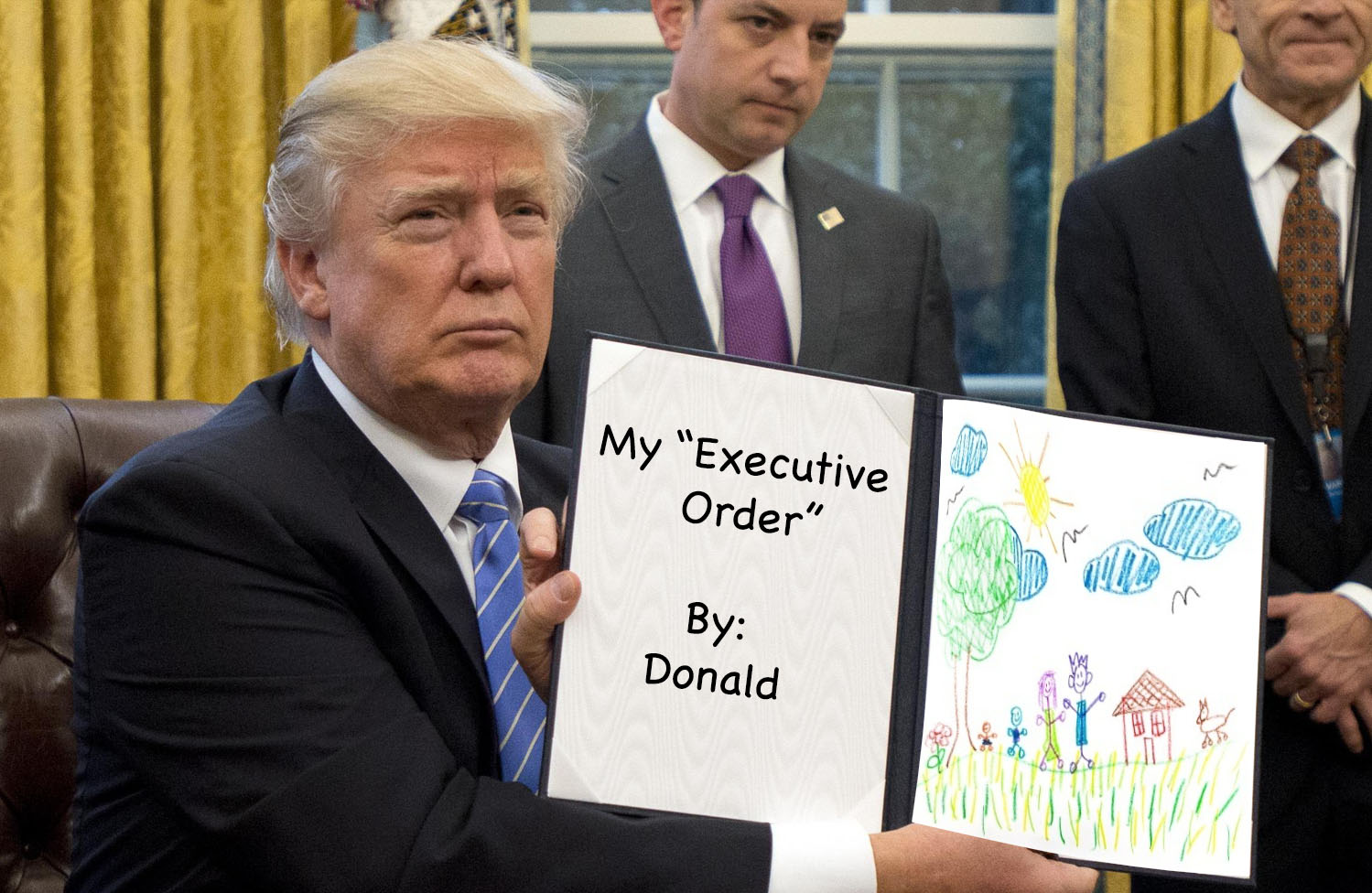As it is written in Article II of the United States Constitution, “the executive Power shall be vested in a President of the United States of America.” Getting down to the nitty-gritty of constitutional language, this section of the constitution explicitly assigns the president the power to sign/veto laws, serve as commander-in-chief of the armed forces, grant pardons, and appoint federal judges.
Nowhere in the language of this historic document does legislation explicitly state the parameters of an “executive order,” however there is a clause that says the President must “take care that the laws be faithfully executed,” and this, ladies and gentlemen, is the basis for President Trump’s affinity for executive orders.
We are now at the mid-point of the Trump administration’s holding of office, and in that two years, the President has published thirty different executive orders. In a study released by the University of California, Santa Barbara Political Science Department, if President Trump continues to release executive orders at the current rate, he will average about 150 orders per year, representing the highest of any sitting U.S. President.
Typically, a President’s decision to submit an executive order stems from their desire to bypass congressional approval. The legislative branch of government is not required to approve an executive order, nor can it veto or overturn an order. At the most, Congress can pass legislation meant to restrict funding needed for the order to function, but even after all that effort, the President still has his original power to veto a law.
In an interview for “Axios on HBO,” released Tuesday, President Trump informed all who were watching that he plans on publishing an executive order that will effectively end birthright citizenship for children of non-citizens and unauthorized immigrants born on U.S. soil. This executive order, if passed, will not only be the most controversial of the thirty orders Trump has published, but also one that challenges the very language of our nation’s Constitution.
The Citizenship Clause of the Fourteenth Amendment to the United States Constitutions states that “All persons born or naturalized in the United States, and subject to the jurisdiction thereof, are citizens of the United States and of the State wherein they reside.” This language, written nearly 150 years ago, was written intentionally to allow those born in America to have the legal right to remain here.
As for the President’s rationale behind this new executive order, political analysts point to the fact that from the very beginning, Trump was clear about his thoughts on immigration and paths to citizenship.
“We’re the only country in the world where a person comes in and has a baby, and the baby is essentially a citizen of the United States for 85 years with all of those benefits. It’s ridiculous…and it has to end.”
–President Donald Trump “Axios on HBO”
The President’s above claim about other countries’ observance of “jus soli,” the right of the soil, is inaccurate. The list of countries that grant automatic birthright citizenship includes but are not limited to:
- Argentina
- Brazil
- Canada
- Chile
- Jamaica
- Mexico
- Peru
- Venezuela
Trump has, on countless occasions, referred to children of illegal immigrants born in the US as “anchor babies,” which, aside from being arguably offensive, is based on the passing of 1965 Immigration and Nationality Act, which allows children born in the US to sponsor other family members for entry into the country when they reach the legal age of twenty-one.
As with any decision of this magnitude, criticism and debate tend to surface soon after. Major critics of the President are disgusted with the possibility of this executive order taking effect but are not concerned because, unlike other orders published by President Trump, this particular order would require an amendment to the Constitution, this requiring Congressional approval.
President Trump has made no official announcement as to when he plans on submitting his citizenship executive order, but when critics insisted the President will have to garner approval from Congress, he scoffed and said that “it was always told to me that you need a constitutional amendment. Guess what? You don’t.”
The intended purpose of a President’s right to “execute the powers” of his position was to ensure the life, liberty, and pursuit of happiness of those residing within our nation’s borders.
If the President can convince Congress that his new executive order will retrain these rights, then so be it. All we can do is wait and see.





